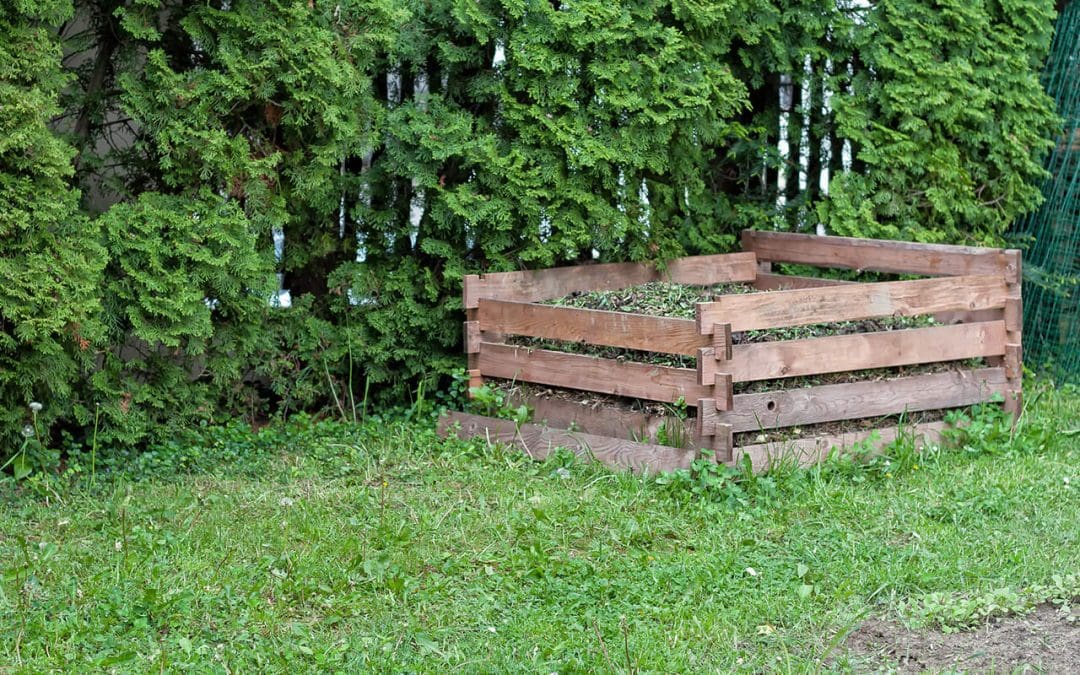Composting is an eco-friendly process that converts kitchen scraps and yard waste into nutrient-rich soil that benefits your garden. It’s an excellent way to reduce landfill waste and decrease greenhouse gas emissions while enhancing the health and fertility of your soil. Here’s everything you need to start composting at home so you can reduce waste and help your plants at the same time.
Why Compost at Home?
- Environmental Impact: Composting at home reduces the amount of organic waste in landfills, which minimizes the production of methane—a potent greenhouse gas.
- Soil Health: Compost adds essential nutrients back into the soil, helping to improve its structure, aeration, and water retention.
- Reduction in Chemical Use: Using compost can decrease the need for chemical fertilizers in your garden, promoting a more natural growing environment.
- Cost-Effective: Composting at home is a cost-effective way to produce your own high-quality compost rather than purchasing it from garden centers.
Getting Started with Composting at Home
Choosing a Composting Method
There are several methods of composting that you can choose based on your household size, yard space, and personal preference:
- Bin Composting: This method involves a compost bin, which can be purchased or homemade. Bins keep the process neat and contained, which is ideal for small spaces.
- Tumbler Composting: Compost tumblers are sealed compost bins mounted on a frame to make turning the compost easier. They are fast, efficient, and keep pests away.
- Pile Composting: If you have more space, start a compost pile in your yard. This method requires more manual turning but is effective and inexpensive.
- Vermicomposting: This involves using worms to break down food scraps. It’s an excellent option for indoor composting and works quickly.
What to Compost
- Greens: This includes vegetable scraps, fruit waste, coffee grounds, and fresh grass clippings. They are rich in nitrogen.
- Browns: These materials include dry leaves, branches, twigs, and shredded newspaper. They provide carbon.
- Water: Moisture is crucial as it helps break down the organic matter.
Avoid composting meat, dairy, and oily foods as they attract pests and produce odor.
Tips for Successful Composting
- Balance Your Greens and Browns: Try to maintain a good balance between greens and browns (about a 1:3 ratio) to speed up the decomposition process and avoid odors.
- Turn Your Compost: Regular turning helps to aerate the pile and speeds up the composting process. If you’re using a tumbler, spin it every few days.
- Monitor Moisture Levels: Your compost should be moist but not soggy. Adjust by adding more browns if it’s too wet or greens if it’s too dry.
- Cut Larger Items: Smaller pieces decompose faster. Chop or shred large pieces of waste before adding them to your compost.
- Use Your Compost: Once it has turned into a dark, crumbly soil that smells earthy, it’s ready to use. Mix it into your garden beds, or use it as mulch.
Composting at home is a straightforward way to positively impact the environment while producing something useful for your garden. Whether you live in an apartment or have a large backyard, there’s a composting method that can work for you. Start composting today, and turn your household waste into garden gold.
FAQs About Composting at Home
How long does it typically take for compost to be ready for use?
The time it takes for compost to mature can vary, but typically, it ranges from 3 to 6 months, depending on factors like the balance of materials, the size of the compost particles, and the weather.
What should I do if my compost has a bad odor?
A foul smell often indicates an imbalance in the compost, usually too many greens. To balance it out, add more browns, like dried leaves or cardboard, and turn the pile to aerate it.
How can I keep animals away from my compost pile?
Use a compost bin with a secure lid, or cover your compost pile with a heavy tarp. Do not add meat, dairy, or oily foods, which are more likely to attract pests.
Can I use compost as a complete substitute for soil?
Compost is rich in nutrients and is best used as a soil amendment. Mixing compost with soil improves the soil’s structure, aeration, and moisture-holding capacity, but it should not completely replace soil in planting environments.
M&T Inspection Services offers home inspections in Indianapolis. Contact us to schedule our services.

